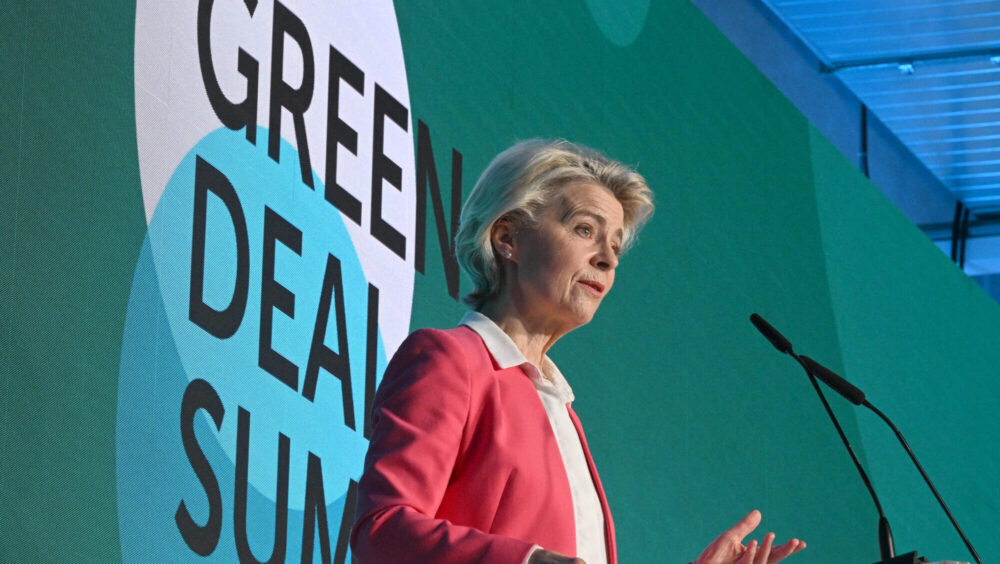
Ursula von der Leyen
Michal Cizek / AFP
European Commission President Ursula von der Leyen has given in to pressure from the Greens group in the European Parliament (EP) to tighten the European Union’s climate laws despite ever-growing resistance from the member states.
Von der Leyen last year made a promise to the Greens to modify the European Climate Law if they support her reelection as head of the Commission.
The Greens said they want “clear and binding” targets set for the member states to achieve by 2040.
The European Climate Law writes into legislation the goal set out in the European Green Deal for Europe to become climate-neutral—achieving net zero greenhouse gas emissions—by 2050. The law also sets an intermediate target of reducing emissions by at least 55% by 2030, compared to 1990 levels.
In its latest recommendation, the Commission wants to establish yet another intermediate target: a reduction of emissions by at least 90% by 2040. If such a proposal were to be adopted, the requirements would become binding for all member states.
Additionally, the EU wants 42.5% of energy consumption to be covered by renewables by 2030, and wants to continue the decarbonisation of the industrial sector by expanding the use of renewable energies, as well as the production of batteries, heat pumps, and electric vehicles.
The Greens are only the sixth largest group in the EP, with 53 MEPs out of 720. The fact that they have such leverage over Von der Leyen, says a lot about the Commission, and points to the unwillingness of EU institutions to take into account the rightward shift in politics after the EU elections last year.
Many member states are rightly blaming the European Green Deal for having introduced tax hikes and unnecessary burdens on companies and farmers, as well as contributing to soaring energy prices and the stifling of the EU’s competitiveness.
While intent on cutting red tape, the Commission’s actions will do next to nothing to save European economies from the disastrous consequences of the Green Deal, and its unrealistic decarbonisation targets.
The right-wing Patriots for Europe group recently urged the Right in the European Parliament to join forces to challenge the Green Deal, and to take “swift, massive, and concrete action” to protect companies and consumers from the negative effects of climate policies.
With the rise of right-wing, anti-globalist parties on both sides of the Atlantic, proposals to ditch radical climate policies are becoming a regular occurrence.
Germany’s likely next chancellor, Friedrich Merz, said he would prioritise revitalising the country’s industrial base ahead of climate protection, and the two parties attempting to form a government in Austria started their talks by agreeing to reducing subsidies paid out for climate policies.
On Sunday, voters in Switzerland rejected a set of rigid greenhouse gas emission limits in a referendum.
